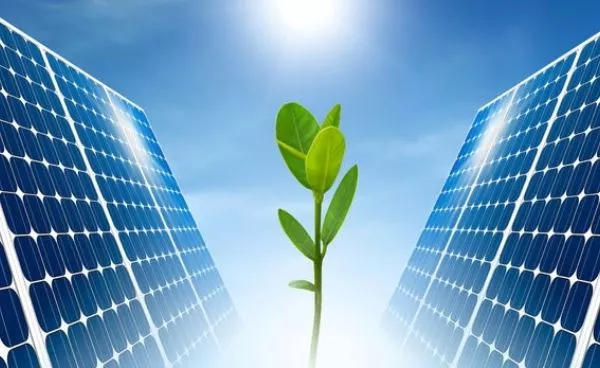Learn How Simply Solar Illinois Can Guide You Reduce Spending on Energy
Learn How Simply Solar Illinois Can Guide You Reduce Spending on Energy
Blog Article
Just How Solar Power Can Assist You Save Money and Minimize Your Carbon Footprint
The combination of solar power into your power portfolio offers a compelling opportunity for both economic cost savings and environmental stewardship. As numerous federal government incentives come to be offered, the question develops: how can one properly navigate the first financial investments and ongoing advantages of solar innovation to maximize both financial and environmental gains?
Recognizing Solar Energy Savings
While the change to solar power usually involves an initial investment, understanding solar power savings is essential for house owners and services alike. Solar energy systems can substantially minimize electrical energy expenses by taking advantage of the sun's energy, translating into substantial lasting economic advantages.
Additionally, solar energy systems might get various financial motivations, consisting of tax credit histories and refunds, even more enhancing their cost-effectiveness. The schedule of web metering enables users to market excess energy back to the grid, creating an added profits stream. These elements contribute to the total cost savings associated with solar power.

In enhancement to route financial savings, solar power provides the included benefit of enhancing building worth. Residences outfitted with photovoltaic panels are often more attractive to buyers, as they promise reduced power prices - Simply Solar Illinois. Recognizing these aspects is necessary for any individual taking into consideration solar power, as it highlights not simply the potential financial gains, but likewise the wider environmental and economic advantages of taking on renewable resource solutions
First Costs vs. Long-Term Benefits
When reviewing solar energy, it is essential to evaluate the initial prices against the long-term advantages. The in advance investment for photovoltaic panels, installment, and associated equipment can be significant, commonly ranging from $15,000 to $30,000, depending on the system dimension and home energy demands. This preliminary expenditure may hinder some house owners; however, it is essential to take into consideration the prospective savings with time.
When installed, solar energy systems can substantially reduce or perhaps get rid of regular monthly electricity costs, causing substantial lasting monetary benefits. Studies show that home owners can conserve anywhere from $10,000 to $30,000 over the lifespan of their planetary system, generally 25 years. In addition, lots of states offer motivations, tax credit histories, and rebates that can offset first expenses, making solar extra accessible.

Reducing Your Carbon Footprint
Minimizing your carbon impact is a vital factor to consider in today's ecologically aware society, and taking on solar power is among one of the most effective methods to achieve this goal. Solar power is a clean, renewable energy that substantially diminishes reliance on nonrenewable fuel see sources, which are major factors to greenhouse gas exhausts.

Furthermore, the extensive adoption of solar innovation encourages the growth of eco-friendly work and supports innovations in power storage and effectiveness. The even more individuals and companies purchase solar energy, the higher the cumulative reduction in carbon exhausts, promoting a cleaner ambience for future generations.
Government Incentives and Discounts
Adopting solar energy not only profits the environment yet can also cause substantial financial savings, specifically with the availability of government motivations and discounts. Various federal, state, and neighborhood programs are designed to motivate home owners and businesses to buy solar power systems, making the transition a lot more economical.
One of the most noticeable motivations is the Federal Financial Investment Tax Obligation Credit Rating (ITC), which enables solar system owners to subtract a considerable portion of the setup prices from their government tax obligations. This motivation has been pivotal in minimizing the in advance expenditures linked with solar power systems. Additionally, many states provide their own tax credit histories, grants, and refunds that can additionally boost financial savings.
In addition, some local governments provide real estate tax exemptions for solar installations, guaranteeing that property owners do not deal with enhanced real estate tax as a result of their renewable resource financial investments. Energy firms might likewise use rewards, consisting of web metering and feed-in Simply Solar Illinois tariffs, which enable solar power users to sell excess power back to the grid.
Choosing the Right Solar System
Selecting the suitable solar system is critical for making best use of energy effectiveness and monetary benefits. The choice hinges on numerous aspects, consisting of energy needs, spending plan, and offered area. Property owners should start by examining their electrical energy consumption to determine the system size needed for optimal efficiency.
Next, take into consideration the different kinds of solar innovations readily available. Simply Solar Illinois. Solar (PV) panels are the most usual, converting sunshine straight into electricity, over here while solar thermal systems focus on home heating water. Each type has unique benefits depending upon specific requirements
Budget plan factors to consider are additionally critical. Initial installation costs can vary considerably, so it is very important to contrast quotes from numerous carriers and explore financing alternatives. Government incentives and refunds can better decrease the monetary problem, making planetary systems much more obtainable.
Conclusion
The environmental advantages of solar energy contribute to lasting methods critical for combating climate change. Government incentives improve the expediency of solar innovation adoption, urging a change towards a cleaner, much more economically efficient power resource.
Report this page